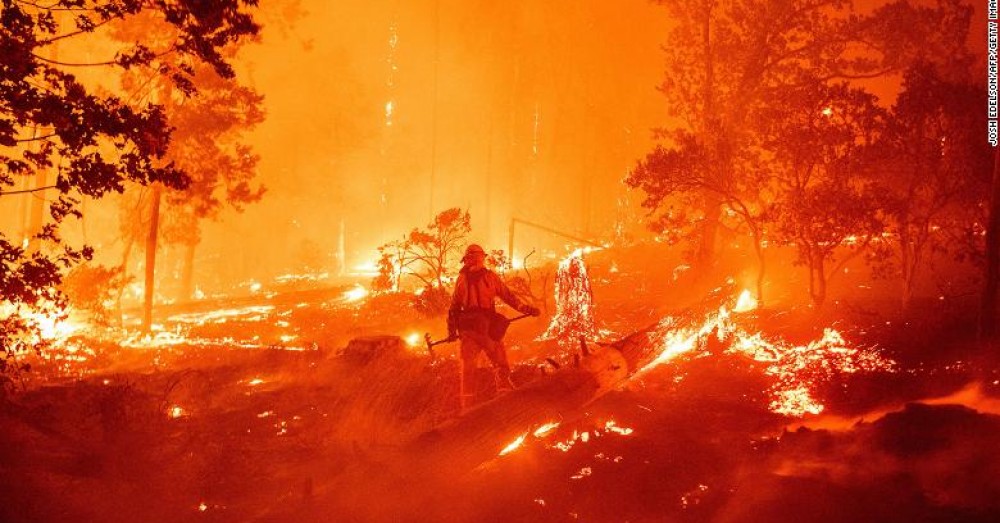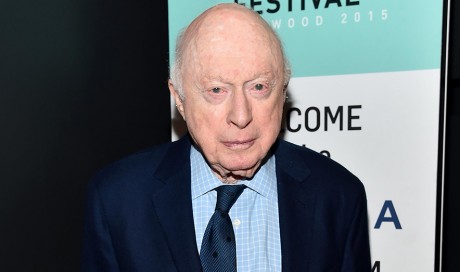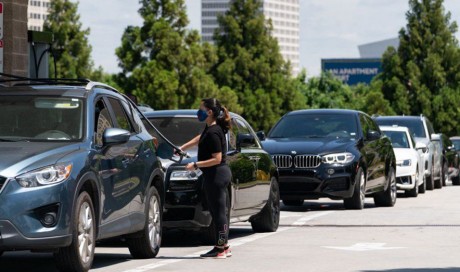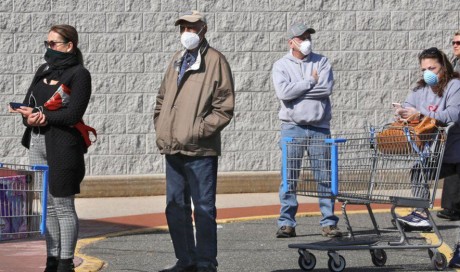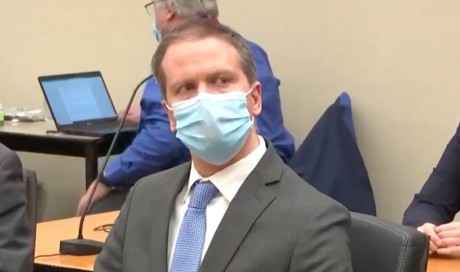President Trump has dismissed concerns over climate change on a visit to fire-ravaged California, telling an official there it would "start getting cooler".
Blazes in California, Oregon and Washington state have burned almost 2m hectares (5m acres) of land and killed at least 36 people since early August.
Climate change sceptic Mr Trump blames the crisis on poor forest management.
Earlier on Monday, Democratic presidential candidate Joe Biden called Mr Trump "a climate arsonist".
He told an event in Delaware that four more years of his opponent in the White House would see "more of America ablaze".
During his visit to the US West Coast, Mr Trump repeated his argument that poor forest management was to blame as he met Californian officials involved in the battle against the wildfires at a stop near Sacramento, in the centre of the state.
Dismissing one official's plea to not "ignore the science" on climate change, Mr Trump said: "It'll start getting cooler, you just watch... I don't think science knows actually."
What else did Trump say about the climate?
When asked by a reporter in California whether climate change was a factor in the massive wildfires, Mr Trump responded: "I think this is more of a management situation."
He claimed that other countries had not dealt with the same level of forest fires, despite major conflagrations in Australia and the Amazon rainforest in recent years that experts attributed to the changing climate.
"They don't have problems like this," he said. "They have very explosive trees, but they don't have problems like this."
He added: "When you get into climate change, well is India going to change its ways? And is China going to change its ways? And Russia? Is Russia going to change its ways?"
Climate change takes political centre stage
At least for one day, climate change is front-and-centre in the US presidential campaign. Donald Trump downplayed the role a warming planet could have in the devastation in California, and that the recent conflagrations were an issue of proper forest management. Meanwhile, Joe Biden went on the attack, saying the president ignores a "central crisis" facing the nation.
Although the environment has typically been a sideline issue, getting scant attention even during the Democratic primaries, the topic is one on which President Trump and Mr Biden are sharply divided.
The Trump administration has rolled back more than 70 environmental regulations, many of which deal with climate change, while also withdrawing the US from the Paris Climate Agreement. Mr Biden, on the other hand, has moved to the left on the environment in recent months, expanding on his original plan for spending $1.7tn infrastructure and green jobs over 10 years to $2tn over four years.
Despite Monday's attention, the environment still ranks behind issues like healthcare and the economy for most Americans. It is, however, an important topic for younger voters - a group that Mr Biden, in particular, is eager to get to the polls in November.
What role is climate change playing?
BBC environment correspondent Matt McGrath says that while natural factors such as strong winds have helped the spread of the West Coast fires, the underlying heating of the climate from human activities is making these conflagrations bigger and more explosive.
Nine of the world's 10 warmest years on record have occurred since 2005, and the UN warned this week that the five years from 2016 until this year will very likely be the hottest such period yet recorded. Both Oregon and California have warmed by more than 1C since 1900.
The sustained warmth has seen six of the 20 largest fires on record in California all occur this year. In Oregon, the spate of fires burned almost twice the amount of average annual losses in a week.
In California, a prolonged drought over the past decade has killed millions of trees, turning them into potent fuel for the fires. Mountain regions that are normally cooler and wetter have dried out more rapidly in the summer, adding to the potential fuel load.
The US election is in November - and the BBC wants to answer your questions about everything from policies, like addressing climate change, to the voting process.
Share This Post

